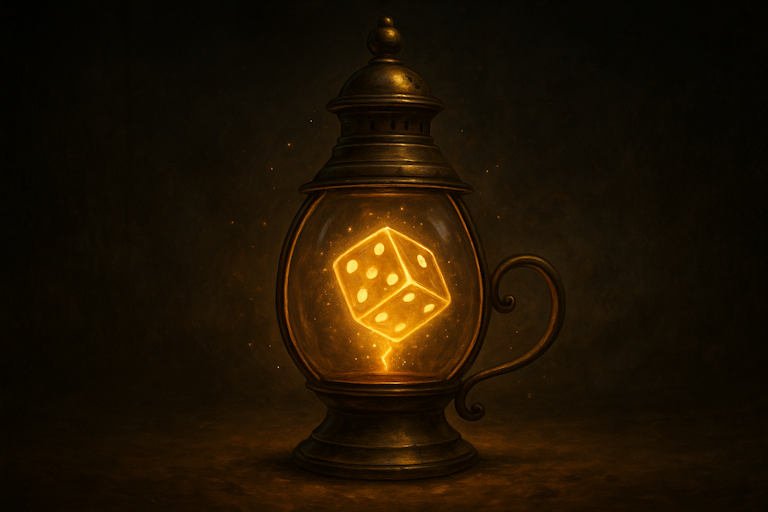
Lessons from board games: powerful insights into connection and play (2025)
Lessons from board games reach far beyond the tabletop. When people gather around a board, something more than play unfolds: stories are shared, choices are tested, and connections grow. The simple act of rolling dice, drawing cards, or placing tokens carries insights that echo into everyday life.
These lessons touch many layers. Socially, board games teach us to listen, to wait, to celebrate victories, and to handle setbacks with grace. Mentally, they sharpen focus, patience, and strategic thought. Creatively, they spark imagination, reminding us that play is a space where new ideas can safely take shape. Together, they show why games remain timeless: they bring people together while quietly shaping how we think and feel.
In this article, we will explore some of the most powerful lessons from board games. We will look at how play fosters connection, stimulates creativity, and supports well-being. And we will see how these insights can enrich not only the games we play, but also the way we approach our daily lives.
Lessons from board games: social connection and empathy
Lessons from board games often begin with something simple: the gathering of people around a shared space. Yet this act alone carries a powerful message. Board games remind us that connection is built not only on words but on shared focus, turn-taking, and the rhythm of play. Every roll of the dice or move of a token becomes part of a conversation that goes beyond language.
One of the clearest social lessons is respect for structure. Players learn to wait their turn, follow rules, and balance personal goals with group dynamics. These are not just game mechanics — they mirror how communities function. A well-played game teaches patience, fairness, and the art of working within boundaries while still seeking creativity.
Another lesson is empathy through perspective-taking. Many games require imagining what others might do, or predicting how they will respond. This mental exercise strengthens the ability to step outside oneself, to see the world through another’s eyes. Even the laughter shared when plans collapse or when someone takes an unexpected move deepens bonds and softens rivalry.
Board games also highlight the importance of handling both victory and loss. Winning brings joy, but losing offers resilience and humility. The table becomes a safe space to practice both emotions — to celebrate without arrogance and to accept setbacks without despair. Over time, this practice nurtures maturity and strengthens relationships.
Finally, connection arises simply from presence. In a world often dominated by screens and distractions, a board game creates a moment of focus where people truly engage with each other. That presence — sitting together, sharing time — is itself a lesson worth remembering.
Through these social insights, lessons from board games remind us that play is more than pastime. It is practice for empathy, patience, and connection — values that resonate far beyond the table.
Reveal the Firefly Inn
Behind its lantern light, stories come alive.
Cross the threshold, and let the inn show you what waits beyond.

Creativity, strategy & imagination in lessons from board games
Among the many lessons from board games, few are as striking as the way they spark imagination while sharpening strategy. A well-designed game manages to stretch both sides of the mind: the creative flow that invents possibilities, and the logical framework that weighs choices. This balance is what keeps play engaging long after the first round.
One powerful lesson is the value of creative thinking. Even in games with strict rules, players often find inventive approaches: a clever trade, an unexpected move, or a fresh interpretation of a card. This reminds us that creativity does not always need total freedom — it can flourish inside constraints. The boundaries of a board game become a frame where imagination takes shape.
Strategy offers another layer. Many games teach players to plan ahead, adapt, and calculate risks. Each decision becomes a lesson in weighing short-term gain against long-term goals. This practice translates beyond the table, encouraging clearer thinking and sharper problem-solving in everyday life.
Imagination, meanwhile, keeps games alive. Whether through storytelling, symbolic pieces, or playful scenarios, imagination turns mechanics into meaning. A simple token becomes a hero, a path across the board becomes a journey. The ability to see more than what is visible — to treat cardboard as story and dice as fate — is itself a form of creativity worth nurturing.
What ties these elements together is the interplay of freedom and structure. Too much freedom, and play feels aimless. Too much structure, and it becomes mechanical. The most lasting games balance both, offering a framework strong enough to guide yet open enough to invite discovery.
Through creativity, strategy, and imagination, lessons from board games show us how to think flexibly, plan wisely, and see beyond the surface. These skills enrich not only our play but also the way we approach challenges in the wider world.
Reveal the Firefly Inn
Behind its lantern light, stories come alive.
Cross the threshold, and let the inn show you what waits beyond.

Quick lessons you can apply from board games
The value of lessons from board games becomes clear when you translate them into everyday practice. These insights show how small elements of play can carry surprising weight:
- Clarity matters. Clear rules and boundaries give freedom a frame, helping creativity flourish without chaos.
- Patience is practice. Waiting your turn teaches calm focus, a skill that carries over into work, study, and relationships.
- Failure is feedback. Losing a round is not the end but an invitation to try again with sharper insight.
- Symbols carry power. Tokens, cards, or dice mean more than their material form — they remind us of the human gift of imagination.
- Presence creates connection. Sitting together around a game board is a reminder of how attention itself can be a form of care.
- Balance is everything. The best play moments blend structure with freedom, competition with collaboration, silence with laughter.
Taken together, these simple points reveal why board games continue to matter. They are not just entertainment but mirrors of how we think, relate, and grow.

What is learned is never simple.
Some truths gleam in lantern-light, others hide in silence
— yet both bind you to your choice
Mental well-being, learning & personal growth
Beyond strategy and connection, one of the most subtle lessons from board games is how they nurture well-being. Sitting down to play is not only recreation; it is also restoration. The rhythm of a game, with its turns and pauses, offers a kind of structure that calms the mind.
Board games reduce stress by creating safe boundaries for challenge. Unlike daily life, the stakes are contained. A setback in the game does not harm your real standing, but it still teaches resilience. This makes play a low-risk space to practice patience, adaptability, and emotional balance.
Another lesson lies in focus and attention. In an age of constant distraction, a board game demands presence: you cannot scroll or multitask without missing your turn. This practice of sustained attention strengthens concentration, a skill that supports work, study, and relationships.
Board games also foster learning through experience. Rules are absorbed by doing, not by lecture. Mistakes become feedback, not failure. This experiential learning teaches flexibility: to adjust strategy, to read situations differently, and to embrace trial and error as a path to growth.
Personal growth emerges from these simple patterns. Winning builds confidence, losing builds humility. Cooperation builds empathy, competition builds drive. In small, repeatable ways, board games mirror the challenges of life but with gentler edges. Each session becomes practice for resilience, patience, and creativity.
Ultimately, the lessons from board games go far beyond fun. They remind us that well-being comes not from escaping challenges, but from engaging with them in safe, playful ways. By embracing the table as a training ground, we find insights that carry into every part of our lives.
Conclusion – Lessons from board games: embracing connection beyond play
The most powerful lessons from board games remind us that play is never only entertainment. A roll of the dice, a card turned over, or a token moved across a board holds insights into how we think, feel, and connect. These lessons are small in scale but vast in meaning, shaping how we approach life outside the game.
We have seen how lessons from board games strengthen social bonds. They teach patience, empathy, and the value of presence. We have also seen how they spark creativity and strategy, reminding us that imagination can flourish within rules and that structure can support freedom. And we have seen how they support well-being, creating safe spaces to practice resilience and focus.
What makes these insights timeless is their adaptability. The same lessons from board games can be applied to family life, education, creative work, or even personal reflection. They show us that learning does not always require classrooms or lectures — sometimes it emerges from laughter, suspense, and the quiet rhythm of turns around a table.
In the end, lessons from board games offer more than victory or defeat. They offer perspective: a reminder that play is a mirror of life, and that every shared moment of presence carries meaning. By embracing these lessons with awareness, we see that the glow of the game does not fade when the board is cleared — it follows us, guiding how we connect, create, and grow.
Reveal the Firefly Inn
Behind its lantern light, stories come alive.
Cross the threshold, and let the inn show you what waits beyond.





